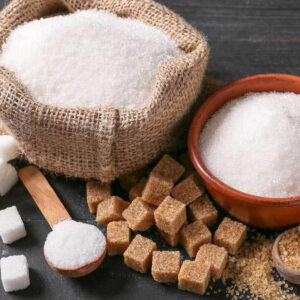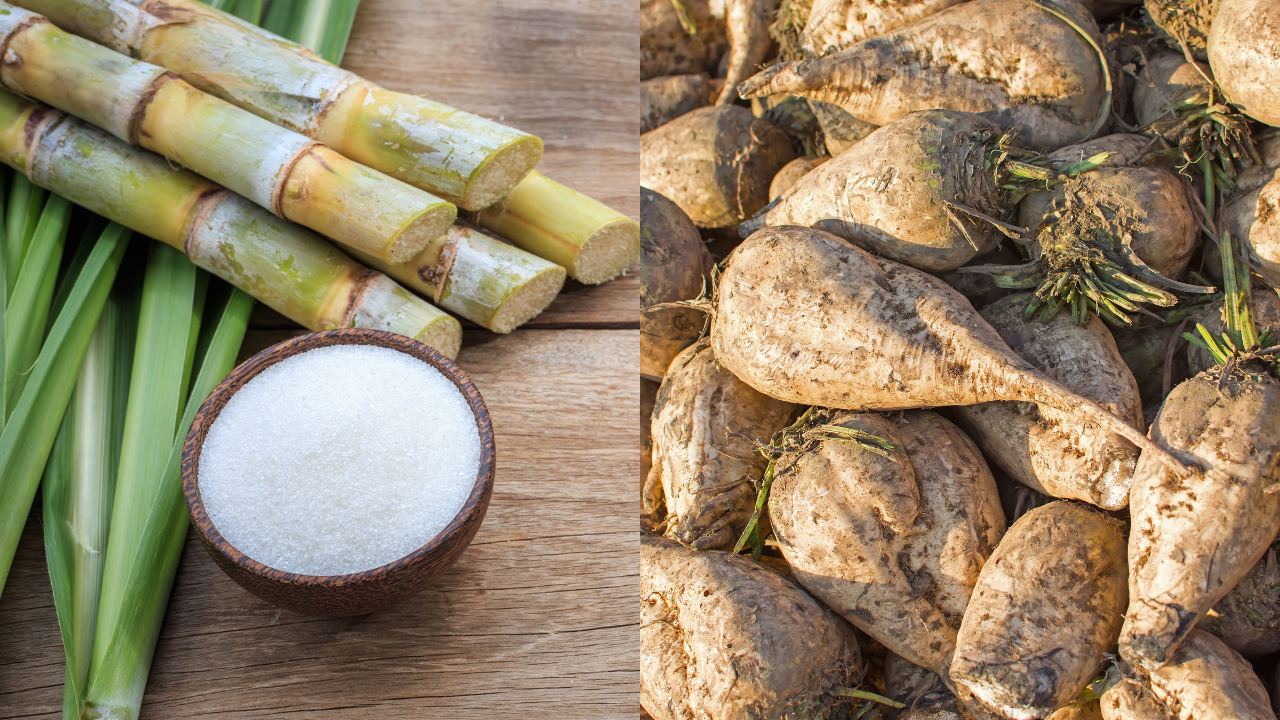Learning about beet sugar vs cane sugar can help bakers decide which fits their lifestyle better.
A Comprehensive Check Out the Benefits and Uses of Beet Sugar Vs Cane Sugar for Sweetening Options
In the world of sweetening, both beet sugar and cane sugar deal distinctive advantages and culinary roles, albeit with comparable dietary profiles. While beet sugar boasts a neutral taste perfect for various dishes, cane sugar improves dishes with subtle sugar touches. The environmental factors to consider of their production are starkly different, painting an intricate image of sustainability. This juxtaposition invites a much deeper expedition right into how each sugar influences not just our palates however likewise the world.
Origins and Processing Techniques of Beet Sugar and Cane Sugar
Beet sugar and cane sugar, two predominant sweeteners, originate from extremely distinctive plants and undertake various processing techniques. Beet sugar is drawn out from the sugar beet, an origin veggie, mostly expanded in cooler environments. The handling entails cutting the beets to extract the juice, which is after that purified and crystallized into sugar. This technique is relatively effective, enabling sugar healing from several stages of the process.
Alternatively, cane sugar originates from the sugarcane plant, a tropical turf. Its processing begins with gathering the cane, crushing it to get the juice, and after that boiling this fluid to develop sugar crystals. The remaining molasses-rich fluid can be re-boiled several times to produce differing qualities of sugar. This process, although rather similar in its objective, differs considerably in regards to the ecological conditions needed for cultivation and the first steps in extracting sugar. beet sugar vs cane sugar. Each approach reflects adjustments to the particular plant's all-natural environments and homes.
Nutritional Comparison: Beet Sugar Versus Cane Sugar

When contrasting the nutritional material of beet sugar and cane sugar, it comes to be apparent that both kinds give a similar energy value. Both beet and cane sugar are 99.9% pure sucrose, making them essentially the same in terms of calorie content and nutritional profile.
Nevertheless, mild differences may develop from the marginal trace components that remain after processing, though these are too minor to impact overall health and wellness. As an example, cane sugar can preserve traces of molasses, depending on the degree of refining, which may include tiny quantities of calcium, iron, and potassium. Beet sugar, on the various other hand, commonly undertakes a procedure that removes these micronutrient a lot more completely, leading to an also purer type of sucrose.
Culinary Utilizes and Flavor Profiles
In spite of their nutritional similarities, beet sugar and cane sugar deviate especially in their cooking applications and taste nuances. Beet sugar, stemmed from sugar beets, generally has a very neutral taste, making it a recommended selection in cooking where it effortlessly incorporates without changing the flavor account of various other components. beet sugar vs cane sugar. It dissolves rapidly, which is advantageous in drinks and great desserts. On the other hand, cane sugar, sourced from the sugarcane plant, usually lugs subtle hints of molasses, also in its polished type. This can add a cozy, caramel-like touch to recipes, improving recipes like cookies, cakes, and sauces where a richer taste is desirable.
Chefs and home chefs alike choose sugars based on these characteristics. While both sugars work in a similar way in terms of useful site sweet taste and physical buildings, the minor taste difference can affect the outcome of a meal dramatically, directing the selection between beet and cane sugar based on the wanted outcome in cooking developments.
Wellness Implications of Consuming Beet and Cane Sugars
Although beet sugar and cane sugar are commonly made use of interchangeably in cooking and cooking, their health implications can differ subtly because a knockout post of their distinctive processing approaches. Both sugars provide regarding the very same quantity of calories and carbohydrates per teaspoon, essentially supplying comparable energy contributions without any type of inherent dietary benefits. However, the refining process for every sugar can modify the visibility of trace minerals and compounds, although these variations are normally marginal and not significant enough to affect one's wellness meaningfully.
The main health and wellness problem with both kinds of sugar relate to their payment to excessive calorie intake, potentially resulting in weight gain, and involved illness like kind 2 diabetic issues and heart problem when eaten in huge amounts. No matter of the source, moderation is key in eating beet or cane sugars. Health experts usually recommend limiting sugarcoated in any kind of kind to maintain ideal health and wellness results.
Ecological Influence and Sustainability of Sugar Manufacturing

On the other hand, sugar beet handling tends to create large amounts of pulp waste, which can be repurposed as pet feed or exchanged bioenergy, therefore alleviating some ecological impacts (beet sugar vs cane sugar). Eventually, the sustainability of sugar manufacturing hinges on taking on even more green farming techniques and waste administration techniques to reduce the environmental footprint of both sugar types

Verdict
To conclude, both beet and cane sugars provide beneficial sweetening choices, each with distinctive benefits and drawbacks. While they are nutritionally comparable, their cultivation influences and flavor accounts differ dramatically. Beet sugar is significant for its sustainability and neutral preference, whereas cane sugar is valued for its abundant flavor. Consumers need to consider these variables, together with the environmental ramifications of sugar production, to make enlightened choices concerning sugar usage that align with cooking requirements and moral values.